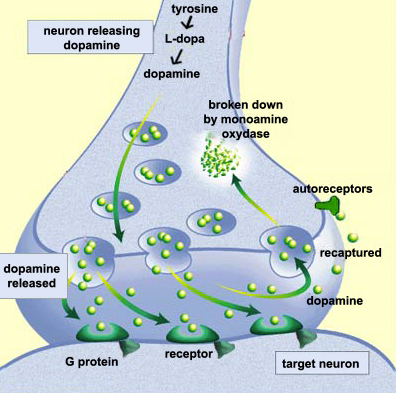“Never apologize for showing feelings. When you do so, you apologize for the truth.” ~Benjamin Disraeli”
We often experience resentment toward other people when we find it hard to forgive them and hold onto unspoken pain.
Whenever we feel we’ve been treated unfairly, judged, or wronged, we have a very powerful internal reaction.
The emotions we experience are strong. We feel them intensely and deeply, because they challenge us to reassess the self-image we hold of ourselves.
The unexpressed painful emotions we experience as a result of other peoples’ actions have the potential to transform into resentment if they are not released in a healthy, effective, and timely way.
Resentment lives inside us, feeding on our negative feelings and emotions. It becomes stronger the longer it is ignored. It can mutate and develop into a warped veil, which prevents us from seeing the world from a healthy, balanced perspective.
If left unresolved, resentment has the power to be all consuming, and is very effective at fuelling anger.
In turn, unexpressed, internalized anger is a ticking time-bomb which can lead to abusive or self-destructive behavior, or a combination of both.
Resentment is a very personal and private emotion, as it has almost no effect on the person it is directed towards.
It resides with its owner, and causes negativity and pain.
Given a conducive set of circumstances and enough time, I can experience resentment on a powerful scale. I believe this is, in part, rooted in my formative years. I was brought up in a home where expressing strong, “negative” emotions was prohibited.
I grew up believing it was unacceptable to express hurt, disappointment, frustration, or anger toward the people who evoked these very emotions in me.
By the time I reached my teen years, I had unwittingly yet wholeheartedly perfected the internalization of painful emotions.
Resentment had found a comfortable home inside me, neighbored by my reluctance and fear of expressing myself.
Whenever anyone hurt me, intentionally or otherwise, I would simply deny my emotions by storing them in a box inside me labelled “deal with this later.” However, later never came. What did come was resentment toward the people who’d hurt me—that and anger.
At the time, I saw this as a kind of pay-off. “If I keep my feelings hidden and unexpressed, then I don’t have to risk jeopardizing the quality of my relationship with this person.”
In truth, I was terrified of rejection.
This fear fuelled my reluctance to express my pain to the people who’d hurt me. Ultimately, the person who I ended up hurting the most was me.
As a young adult I began to reflect; to try to understand how my behavior, reactions, and choices were affecting my overall well-being and happiness in life.
At first, I felt weak for not being able to consciously override my existing behavior patterns and simply create newer, healthier thought processes and actions.
I wanted more for myself than a life limited by my own self-imposed parameters.
It took a lot of honest and thoughtful self examination to begin to realize, understand, and accept what was preventing me from living a life free from bitterness.
After years of denying myself the full spectrum of my emotions, I resented anyone who stirred powerful, “negative” feelings inside me. My resentment toward others was intrinsically linked to my own inability to express painful emotions.
Looking back, I feel that if I had expressed myself more truthfully, I would not have clung so desperately to the resentment and anger. I also believe I would have welcomed forgiveness and been able to enjoy closer relationships with others more readily.
Everyone needs to express themselves. This is not a luxury; this is an absolute necessity.
To be fully free and completely ourselves, we must feel comfortable enough to outwardly express our emotions, whatever form they take.
If you are experiencing feelings of resentment, here are a few tips that may help you to let go and move forward:
Express yourself
When we deny our feelings, we are denying the truth. What kind of life are we living if we are not living truthfully?
Allowing ourselves to feel our full range of emotions is not only liberating and necessary, but it also helps cleanse us of negativity which we may be subconsciously holding on to.
Many of us are conditioned to see emotions as “good” and “bad.” To regard the complexity of emotions as either black or white belies the learning opportunities which are embedded and disguised in experiencing them.
For example, jealousy could be regarded as a “bad” emotion; however, if we open our minds and hearts, we could also see that this emotion is our own personal doorway to learning more about fear, trust, and connection.
When someone hurts us, intentionally or accidentally, we have a responsibility to ourselves to express our pain.
This needn’t be self indulgent or pitiful, but an understanding that it is our right to express that pain in an effective, healthy manner which helps us to let go and move forward.
The next time you experience a strong emotion such as fear, hurt, disappointment, anger, fury, or panic, try using this simple mantra:
“Right now I feel (INSERT EMOTION). I give myself permission to feel (INSERT EMOTION) because I have a right to express myself and my emotions.”
When we stop trying to control our feelings, and start embracing the colorful way in which our hearts communicate with us, life begins to teach us our most important lessons.
Communicate your feelings
It takes huge strength and courage to express and communicate our pain to the people who hurt us. In doing so, we expose our vulnerable side—the very part that we want to protect and keep safe.
But when we communicate painful emotions, we take a step outside of our comfort zone and into a wonderful learning and growth opportunity.
The next time someone’s actions hurt you, try telling them how you feel. For example, “When you raise your voice, I feel scared and disrespected,” or “When you ignore me, it makes me feel unappreciated.” Choose the right words to convey your feelings.
Try to express yourself from a calm and balanced frame of mind. Your words will have more effect if you are able to express them from a strong, healthy standpoint.
Remember that you are doing this for you. It may also help the relationship, but your main motivation for communicating and expressing your feelings is your commitment to living a truthful life, free from resentment.
Practice forgiveness
Forgiveness is your own personal honor. The ability to wholly and truly forgive is one of the greatest gifts you can ever give yourself.
Forgiveness sets you free from resentment’s confines; it breaks down the walls that anger builds and negativity reinforces.
When we forgive, we stop letting ours pasts dictate our presents. We acknowledge we want the very best for ourselves; accepting that our past makes us the person we are today, and embracing that.
Letting go of resentment doesn’t necessarily lead to forgiveness, but when you embrace forgiveness, resentment ceases to exist.
When we commit to expressing ourselves fully, we become stronger, more confident, and more aware.
We cannot control what other people do, but we can control how we react. When we practice truthful living, self-expression, and forgiveness, resentment simply has no place or power in our lives.







 Apples: A compound found in apples called "quercetin' is an antioxidant that studies have shown may not only help in the prevention of cancer but may also play an important role in the prevention of neurodegenerative disorders. There may be something to that old saying, "An apple a day keeps the doctor away..."
Apples: A compound found in apples called "quercetin' is an antioxidant that studies have shown may not only help in the prevention of cancer but may also play an important role in the prevention of neurodegenerative disorders. There may be something to that old saying, "An apple a day keeps the doctor away..." Chicken & Turkey: Chicken and turkey meat, like eggs, contains complete low-fat protein source that increases levels of neurotransmitters norepinephrine and dopamine.
Chicken & Turkey: Chicken and turkey meat, like eggs, contains complete low-fat protein source that increases levels of neurotransmitters norepinephrine and dopamine. 

 Wheat Germ: Wheat Germ is a good source of Phenylalanine. Phenylalanine is an essential amino acid found in the brain and blood plasma that can convert in the body to tyrosine, which in turn is used to synthesize dopamine.
Wheat Germ: Wheat Germ is a good source of Phenylalanine. Phenylalanine is an essential amino acid found in the brain and blood plasma that can convert in the body to tyrosine, which in turn is used to synthesize dopamine.